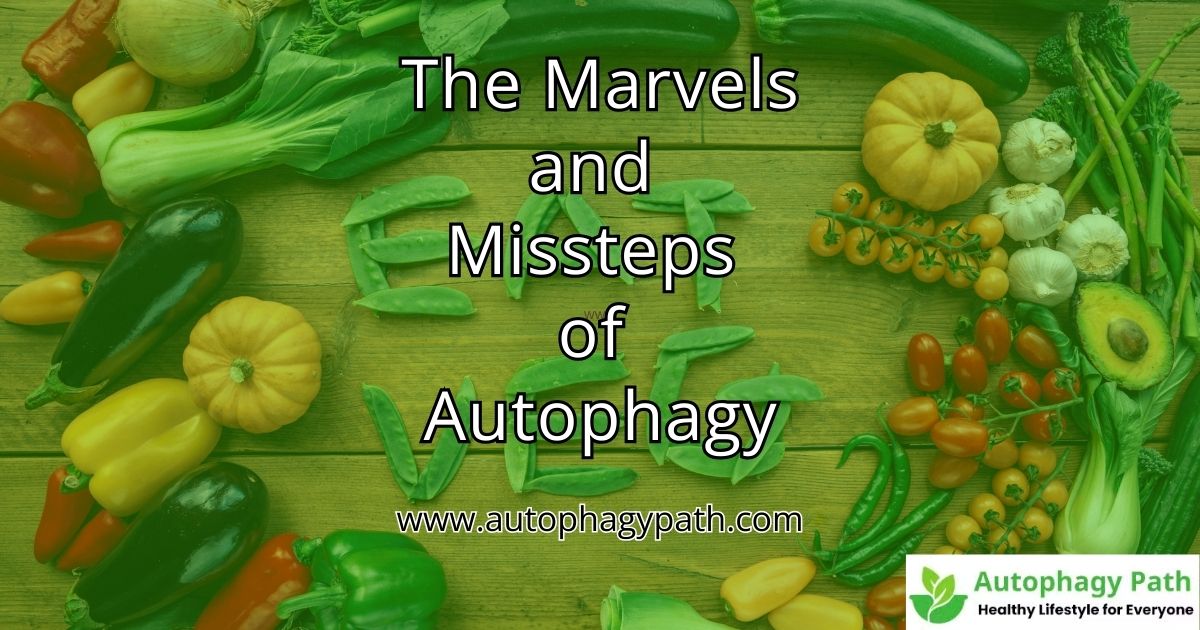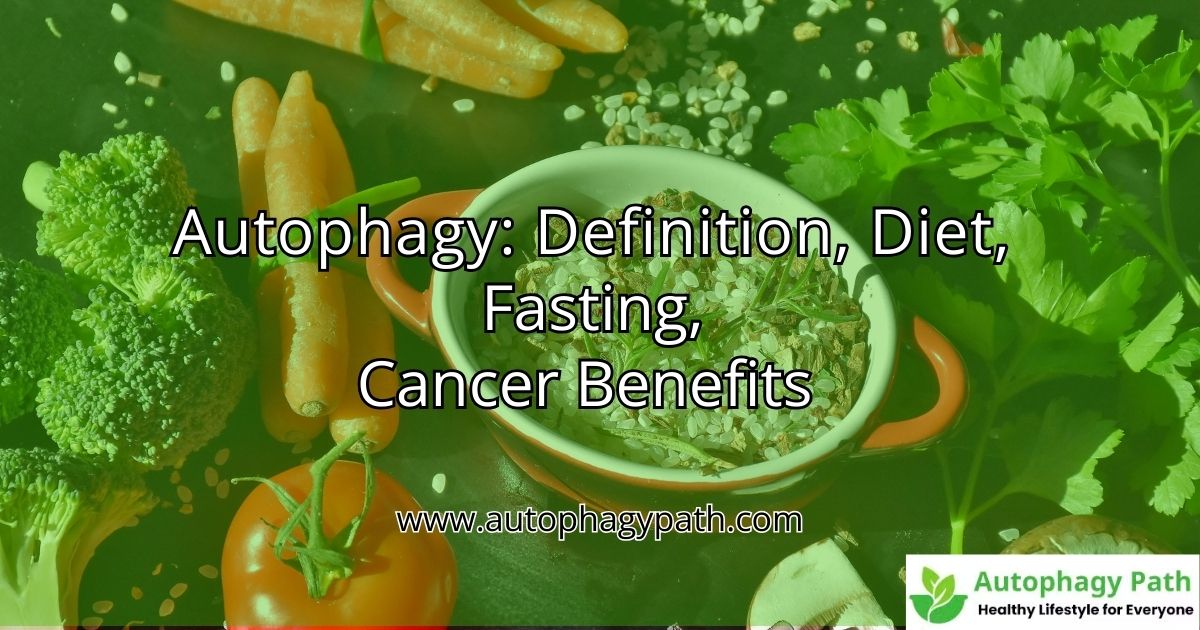What are the benefits of autophagy
In our quest for better health and longevity, we often want to see What are the benefits of autophagy. Here they are illustrating strategies and practices that promise significant benefits. One such fascinating and scientifically backed phenomenon is autophagy.
What are the benefits of autophagy?
Derived from the Greek language vocabulary, the word autophagy means self-eating. This natural process involves our body cells cleaning out damaged components and recycling parts to enhance cellular function. While it might sound like a topic reserved for biology textbooks, understanding and harnessing the benefits of autophagy can have profound implications for our health. In this blog post, we will delve into what autophagy is, explore its numerous health benefits, discuss how we can induce it through practical approaches, and examine any potential risks involved. By the end, you will understand why this process is vital and how you can incorporate autophagy-promoting practices into your daily life.

Table of Contents
Health Benefits of Autophagy:
Autophagy, the way of cleaning the house at the cellular level, plays a critical role in maintaining our health. Let us break down the key health benefits:
1. Cellular Repair and Maintenance:
Autophagy is essentially the quality control mechanism. By breaking down and recycling damaged cellular components, autophagy helps the integrity of cells. This process not only prevents the accumulation of cellular debris but also ensures that cells function optimally. This cellular rejuvenation is crucial for overall health and well-being.
2. Impact on Aging and Longevity:
One of the most exciting aspects of autophagy is its potential to impact aging. Research suggests that autophagy contributes to longevity by protecting cells from damage and stress. By clearing out damaged proteins and organelles, autophagy reduces the risk of age-related diseases and promotes healthier, longer life. Studies on various organisms have shown that enhanced autophagy can lead to increased lifespan, making it a promising target for anti-aging interventions.
3. Disease Prevention:
Autophagy plays a vital role in preventing a range of diseases. For example
Neurodegenerative Diseases: Conditions like Alzheimer’s, Parkinson and Huntington’s diseases get identified by the accumulation of abnormal proteins. Autophagy helps in clearing these toxic proteins, potentially slowing disease progression.
Cancer: Autophagy can act as a double-edged sword in cancer. On one hand, it can suppress tumor initiation by removing damaged cellular components that could lead to cancer. On the other hand, in established tumors, cancer cells might exploit autophagy for survival under stress. Hence, understanding and modulating autophagy is crucial in cancer therapy.
Infections: By degrading intracellular pathogens, autophagy enhances the ability to fight infections, contributing to an immune response.
4. Immune System Support:
Beyond fighting infections, autophagy plays a broader role in modulating the immune system. It helps in the presentation of antigens, thereby facilitating the recognition and destruction of pathogens by the immune system. Additionally, autophagy regulates inflammation by controlling the release of pro-inflammatory cytokines, thereby preventing chronic inflammation in numerous diseases.
5. Metabolic Benefits and Weight Management:
Autophagy with metabolism. It helps energy balance by degrading and recycling cellular components, thus providing substrates for energy production. This process is during periods of fasting or caloric restriction. Autophagy also influences the function of insulin and leptin, hormones crucial for regulating blood sugar levels and appetite. By improving insulin sensitivity and promoting lipid metabolism, autophagy can aid in weight management and reduce the risk of metabolic disorders like diabetes.
Inducing Autophagy: Practical Approaches:
While our bodies naturally undergo autophagy, lifestyle, and dietary strategies can enhance this process:
Dietary Strategies:
Fasting: Intermittent fasting, where you cycle between periods of eating and fasting, is one of the most effective ways to induce autophagy. During fasting, the lack of nutrients triggers the body to initiate autophagy to recycle cellular components for energy.
Ketogenic Diet: This high-fat, low-carbohydrate diet, moderate protein diet called ketogenic diet mimics the metabolic state of fasting by increasing ketone bodies, which are known to promote autophagy.
Caloric Restriction: Reducing overall caloric intake without malnutrition can also enhance autophagy, promoting cellular health and longevity.
Exercise and Physical Activity:
Regular physical activity clubbed together with moderate intensity exercise is another inducer of autophagy. Exercise creates a stress response in the body that leads to the removal of damaged cellular components. Both aerobic exercise (like running and cycling) and resistance training (like weight lifting) have to stimulate autophagy, contributing to muscle health and overall metabolic function.
Pharmaceutical and Natural Compounds:
Compounds that have to stimulate autophagy:
Resveratrol: Red wine and grapes contain the chemical compound resveratrol in activating autophagy through specific signaling pathways.
Rapamycin: This drug, originally used to prevent organ transplant rejection, has autophagy by inhibiting the mTOR pathway, cell growth, and autophagy.
Metformin: Commonly used to treat type 2 diabetes, metformin also promotes autophagy, offering potential benefits beyond blood sugar control.

Risks and Considerations:
While autophagy offers numerous health benefits, it is essential to approach it with a balanced perspective:
Potential Risks of Excessive Autophagy:
Excessive autophagy can be detrimental, leading to excessive degradation of cellular components, which can impair cell function. Conditions like neurodegeneration can be uncontrolled autophagy. Therefore, it is crucial to find a balance.
Balancing Autophagy with Other Health Practices:
Autophagy should be one part of a holistic approach to health. Combining autophagy promoting practices with a balanced diet, regular exercise, moderate yoga practice, adequate sleep, and stress management will provide the best outcomes.
Consultation with Healthcare Providers:
Before making significant changes to your diet or lifestyle to enhance autophagy, it is essential to consult with a healthcare provider, especially if you have existing health conditions or are taking medication. A healthcare provider can help tailor an approach that suits your health needs and circumstances.
Frequently Asked Questions
- Q: Can I induce autophagy without fasting?
A: Yes, you can. While fasting is a powerful trigger, regular exercise, a ketogenic diet, and compounds like resveratrol and metformin can also promote autophagy.
- Q: How long do I need to fast to induce autophagy?
A: The onset of autophagy can vary, but generally, it begins to ramp up after 16-24 hours of fasting. However, the exact timing can depend on individual metabolic factors.
- Q: Is autophagy safe for everyone?
A: While autophagy is a natural and generally beneficial process, people with certain health conditions or those who are pregnant or breastfeeding should consult with a healthcare provider before making significant changes to their diet or lifestyle to enhance autophagy.
- How long should you stay in autophagy for benefits?
Autophagy benefits can be achieved after fasting for approximately 16 to 24 hours.
- What does autophagy do to your body?
Autophagy is a cellular process that helps remove damaged or unnecessary components, promoting cell renewal and overall health.
- How do I know if autophagy is working?
Look for signs such as improved energy levels, mental clarity, and weight loss. Additionally, you may experience reduced inflammation and improved overall health.
- Does autophagy heal everything?
No, autophagy does not heal everything.
Conclusion
Autophagy is a remarkable natural process in maintaining cellular health, preventing diseases, and potentially extending lifespan. By understanding and harnessing the benefits of autophagy through practical approaches like intermittent fasting, exercise, we can improve our overall health and well-being. However, it is essential to approach autophagy with a balanced perspective, ensuring not to overdo it and integrate it into a broader, healthy lifestyle. Embracing autophagy as part of our health regimen can be a transformative step toward achieving better health and longevity.






